Introduction
Are Ferrets Expensive: Ferrets, those charming and mischievous members of the mustelid family, have captured the hearts of pet enthusiasts worldwide. As potential companions, they offer a unique blend of curiosity, playfulness, and affection. However, before embarking on the journey of ferret ownership, it’s essential to consider the financial aspect. This question often looms large in the minds of prospective ferret owners, and in this exploration, we will delve into the various costs associated with ferret ownership to provide a comprehensive answer. From initial acquisition expenses to ongoing maintenance, veterinary care, and everything in between, understanding the financial commitment involved in providing a happy and healthy life for these captivating creatures is crucial. So, join us as we uncover the real cost of ferrets stink ownership and shed light on whether these delightful pets fit comfortably within your budget.
The allure of ferret ownership goes beyond their adorable antics and boundless energy. Ferrets, with their inquisitive nature and social demeanor, can become cherished members of the family. However, to ensure a harmonious and fulfilling life for both you and your furry companions, it’s vital to weigh the expenses that come with their care. The cost of owning a ferret encompasses various aspects, starting with the initial investment. Ferrets themselves can be relatively affordable when compared to some other pets, but there are several associated costs that potential owners should be aware of. These include acquiring a suitable cage or enclosure, bedding, toys, and other essential accessories to create a safe and stimulating environment for your ferrets. Moreover, the ongoing expenses of feeding, grooming, and providing medical care for ferrets can add up over time.
Ferrets have specific dietary requirements, and high-quality ferret food is necessary to ensure their health and longevity. Routine veterinary check-ups and vaccinations are essential to keep them in prime condition and prevent potential health issues. Beyond the basics, you may also need to budget for unexpected expenses, such as emergency veterinary care or unforeseen repairs to their habitat or accessories. Ferrets are known for their curious and mischievous behavior, which can sometimes lead to accidents or damage. In this exploration, we will delve deeper into each aspect of ferret ownership costs, providing insights and tips to help prospective ferret parents make informed decisions about whether they are financially prepared to provide the love and care these captivating creatures deserve. So, let’s embark on this journey to unravel the true cost of ferret ownership and help you determine if it aligns with your budget and lifestyle.

Are ferrets friendly pets?
Ferrets have an inquisitive and playful nature. They can learn to see humans as companions and form a strong bond with their owners. This makes them a popular pet choice because of their sociable and charming character.
Social Animals: Ferrets are highly social creatures. In the wild, they live in groups called “businesses” and are known for their playful interactions with each other. As pets, they often crave social interaction with their human companions. They thrive on attention and enjoy being part of the family. This social nature makes them friendly and engaging pets.
Playful and Energetic: Ferrets are incredibly playful and have seemingly boundless energy. They love to frolic, explore, and engage in interactive games with their owners. Their playful antics can provide endless entertainment and are sure to bring smiles to your face.
Affectionate: Ferrets can form strong bonds with their owners and often display affection through behaviors like licking, cuddling, and playfulness. They may even follow you around the house, seeking attention and companionship.
Inquisitive Nature: Ferrets are naturally curious and have a knack for getting into tight spaces and exploring every nook and cranny. While their curiosity is endearing, it also requires pet-proofing your home to keep them safe.
Are ferrets easy to own?
They are lively, curious and fun-loving pets, and they’re very social. This means that they can make great pets, but they’re not the easiest to handle and can bite hard if startled. So they don’t always make good pets for children.
Social Nature: Ferrets are highly social animals and thrive on interaction with their human companions. This means they can get lonely and bored if left alone for extended periods. You’ll need to invest time in playing, cuddling, and engaging with them daily.
Playful and Energetic: Ferrets are known for their boundless energy and love of play. Providing them with ample opportunities for exercise and mental stimulation is crucial. This can include toys, tunnels, and playtime outside of their enclosure.
Dietary Needs: Ferrets have specific dietary requirements. They are obligate carnivores, which means their diet should primarily consist of high-quality meat-based foods. Proper feeding and portion control are essential to their health.
Litter Box Training: Ferrets can be litter box trained, but it may take some patience and consistency. Regular cleaning of their litter boxes is necessary to maintain a clean living environment.
Are ferrets cuddly?
Ferrets may be tiny, but they pack big personalities into small packages. These guys can be extremely loving and cuddly with their humans. Of course, it takes time to form that special friendship.
Variability in Personalities: Ferrets, like humans, have unique personalities. While some ferrets are naturally more cuddly and affectionate, others may be more independent or playful. It’s essential to spend time with a ferret before bringing one home to gauge its personality and compatibility with your own.
Bonding: Building a strong bond with your ferret is key to their cuddly behavior. Spending quality time with them, playing, and handling them gently from a young age can help foster trust and affection. Many ferrets enjoy being held, snuggled, and cuddled by their owners once a strong bond is established.
Social Animals: Ferrets are inherently social creatures. They often seek out companionship, and cuddling can be a way for them to express their affection and bond with you. If you have multiple ferrets, they may cuddle and sleep together, showcasing their social nature.
Temperature Sensitivity: Ferrets are sensitive to temperature, and they enjoy warmth. They may seek out cuddling as a way to stay warm, especially in cooler environments. Providing a cozy and comfortable living space can encourage cuddly behavior.
Is Fennec Fox legal in India?
As an expert on exotic pets, I can tell you that unfortunately, the adorable fennec fox is indeed illegal to keep as a pet in India. While these little foxes are incredibly cute and fascinating creatures, they are native to North Africa and the Sahara Desert.
Wild Animal Conservation: Fennec foxes are native to North Africa and are considered a wild species. India, like many other countries, prohibits the ownership of wild animals as pets to help protect their populations in the wild.
Animal Welfare: Exotic animals, including fennec foxes, have specialized needs that can be challenging to meet in a domestic setting. Ensuring the welfare and well-being of these animals can be difficult, and they may suffer in captivity.
Public Safety: Fennec foxes, while small, are still wild animals and can exhibit unpredictable behavior when kept as pets. There may be risks to both the owner and the public if such animals were to escape or become aggressive.
Zoonotic Diseases: Wild animals can carry diseases that can be transmitted to humans (zoonotic diseases). Owning such animals may pose health risks to their owners.
Do ferret bites hurt?
It’s worth noting that the ferret’s skin is thicker and tougher than human skin, so when ferrets nip at each other in play, they don’t inflict any real pain. But when they nip at a human, it can hurt.
Ferret bites are a topic of concern for many prospective ferret owners, especially those who are new to these playful and curious animals. While ferrets are generally friendly and affectionate, they may occasionally nip or bite for various reasons. Understanding why ferrets bite and how to prevent and manage their bites is essential for a harmonious relationship with these charming pets.
Yes, ferret bites can hurt. Ferrets have sharp teeth, and their bites can be painful, especially if they bite down with force. However, it’s important to note that not all ferret bites are aggressive or intended to harm. Ferrets may bite for several reasons, and understanding these reasons can help you avoid situations where bites are more likely to occur.
Ferrets are playful animals, and sometimes they use their mouths to interact with their human companions. This play biting is often gentle and not meant to harm but can still be uncomfortable.
Ferrets are curious creatures, and they explore their environment with their mouths. They may nip or bite objects and people to investigate them.
What is toxic to ferrets?
Pesticides such as ant bait, fly/wasp spray, slug pellets and rat poison can cause death in ferrets, as can alcohol, paint, spirits, petrol, varnish, glue and batteries. Phenols are extremely hazardous to ferrets so do not use a phenol based cleaner to clean your ferrets’ accommodation.
Many medications designed for humans or other animals can be harmful to ferrets. Pain relievers like ibuprofen and acetaminophen, as well as prescription medications not specifically prescribed by a veterinarian for a ferret, can be toxic.
Common household cleaning products often contain harsh chemicals that can be harmful if ingested or inhaled by ferrets. Ensure that ferrets do not have access to areas where these products are used, and keep them out of reach.
Some houseplants and outdoor plants are toxic to ferrets if ingested. Examples include lilies, philodendrons, poinsettias, and foxglove. Be cautious about keeping toxic plants in your home or where your ferret can reach them.
While ferrets have specific dietary requirements, some human foods can be harmful to them. Onions, garlic, grapes, raisins, and high-sugar or high-fat foods are examples of items that can be toxic to ferrets.
Are ferrets dirty pets?
Ferrets are very clean and, like a cat, can be trained to use a litter tray. However, ferrets are messy with food and water so creating a splash-proof corner with some acrylic bathroom splashbacks will make cleaning up easier, along with newspaper under their bowls to soak up spillages.
Scent Glands: Ferrets have scent glands located near their anus, which produce an oily substance with a musky odor. These glands can release a scent when ferrets are excited, stressed, or marking their territory. While this natural scent is usually not overpowering, it can be noticeable.
Diet: A ferret’s diet plays a crucial role in their odor. If fed low-quality or inappropriate food, they may produce more odorous waste. High-quality ferret-specific food can help minimize waste odor.
Litter Box Maintenance: Proper maintenance of the litter box is essential to prevent odor buildup. Cleaning the litter box daily and using a high-quality, low-dust litter can help keep odors in check.
Cage Cleaning: Ferrets should have a clean and spacious living environment. Regular cleaning of their cage, bedding, and toys is necessary to prevent any buildup of waste or odor.
What do ferrets smell like?
One of the things that people will notice if you have a ferret or if you’re ever encountered a ferret for the first time is that they do have a very distinctive odor. It’s described as a musky odor. If you’ve never smelled it before, it’s kind of hard to describe. It’s not the most pleasant-smelling odor.
The primary scent associated with ferrets is musky, which is derived from the secretions of their scent glands. In the wild, ferrets use this scent to mark territory and communicate with other ferrets. When excited, stressed, or during play, ferrets may release this musky odor.
Ferrets are diligent groomers. They clean themselves regularly, similar to cats. Their grooming behavior helps keep their fur clean and minimizes the intensity of their natural scent. A well-groomed ferret typically has a milder odor.
The smell of a ferret can be influenced by its diet. Feeding a high-quality, protein-rich, and balanced diet can help reduce the intensity of their natural scent. Lower-quality or inappropriate foods can lead to more pungent waste and potentially contribute to a stronger odor.
Just like humans, ferrets have their own individual scent profiles. Some ferrets may naturally have a stronger musky odor than others. It’s essential to recognize and respect these individual differences.
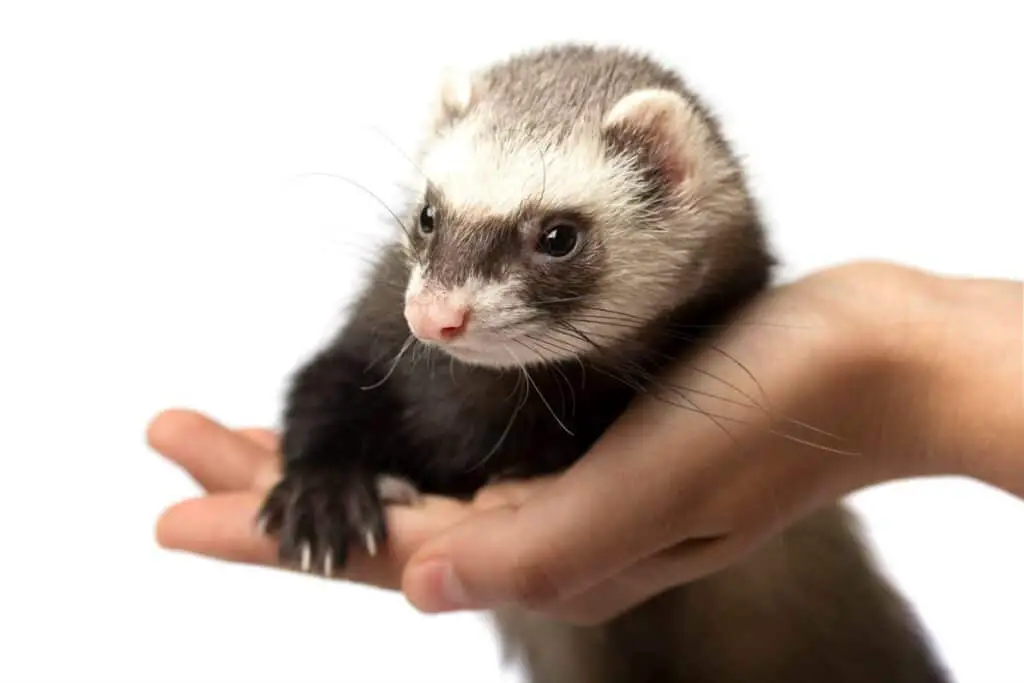
Conclusion
The question of whether ferrets are expensive to care for has a multifaceted answer. While these charismatic creatures may not break the bank in terms of initial acquisition, it’s essential for potential ferret owners to recognize the ongoing financial commitment involved. From the costs of setting up their habitat, providing specialized food, and ensuring regular veterinary care to potential unforeseen expenses, the financial responsibility of ferret ownership should not be underestimated. However, the expenses associated with ferrets are not just about dollars and cents. It’s also about the time, effort, and emotional investment required to provide a loving and stimulating environment for these curious and social animals. Ferret enthusiasts often find the joy and companionship these creatures bring to be well worth the financial commitment.
Ultimately, whether ferrets are considered expensive depends on one’s individual circumstances, budget, and dedication to providing the best possible care for these endearing pets. Properly budgeting and planning for their needs can help prospective ferret owners ensure a happy and healthy life for their furry friends, making the financial aspect of ferrets cost ownership a manageable and rewarding endeavor. It’s worth noting that while ferret ownership does come with costs, many people find the unique personalities and boundless energy of ferrets to be incredibly rewarding. These playful and affectionate animals often form strong bonds with their owners, making the investment in their care a labor of love.
To navigate the financial aspects of ferret ownership successfully, potential owners should conduct thorough research, establish a budget, and be prepared for both routine and unexpected expenses. Proper planning can help mitigate the financial strain and ensure that your ferrets receive the care and attention they need throughout their lives. In the end, whether ferrets are expensive depends on your perspective and priorities. While they do require financial resources, the rewards of having ferrets as companions, including their infectious enthusiasm and affection, can far outweigh the costs. Responsible ownership, combined with a genuine love for these captivating creatures, can make the financial aspect of caring for ferrets a worthwhile and fulfilling endeavor.

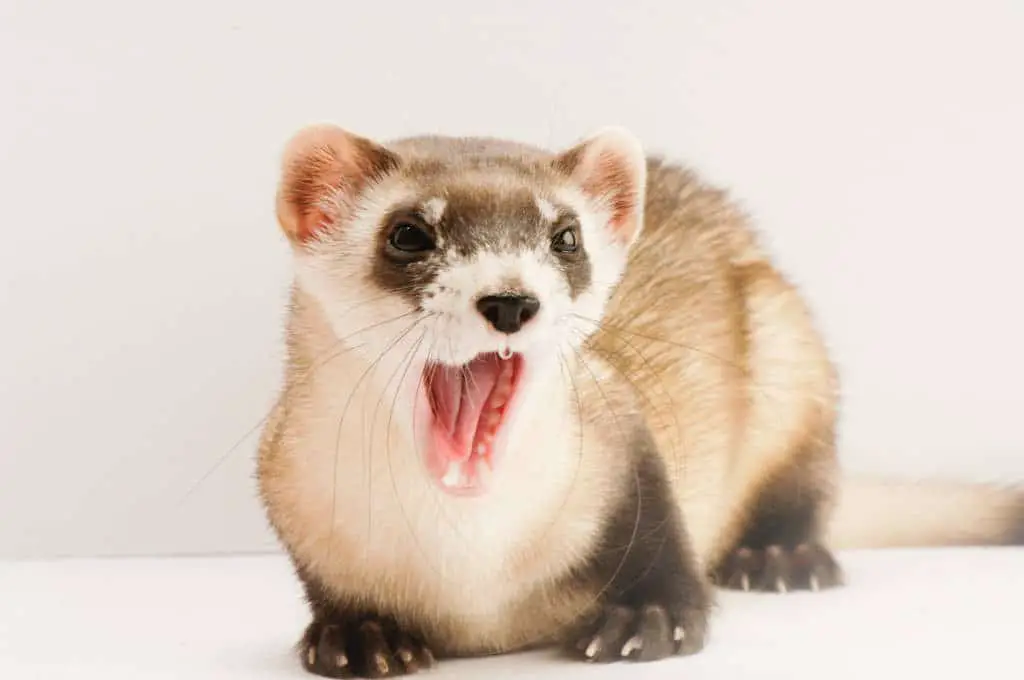
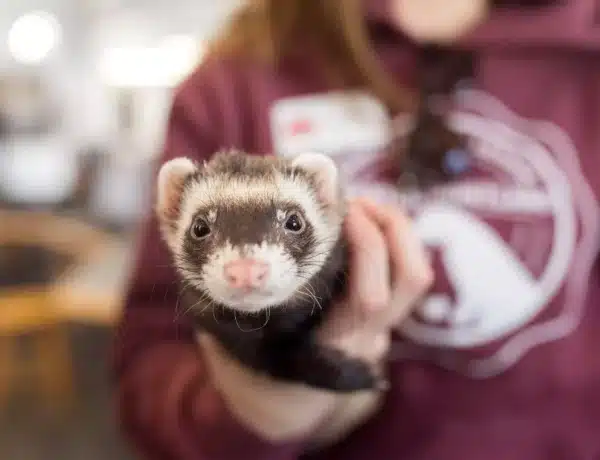
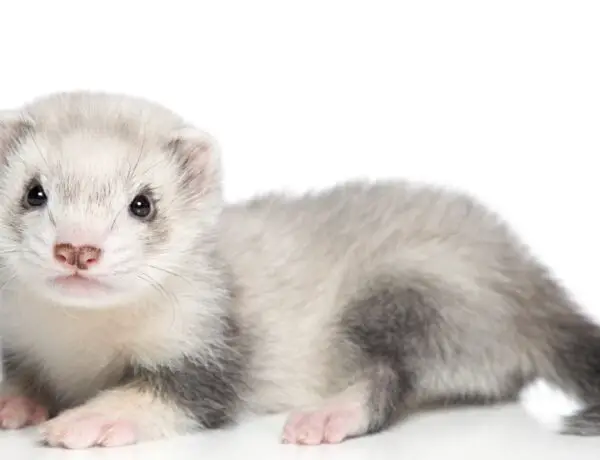
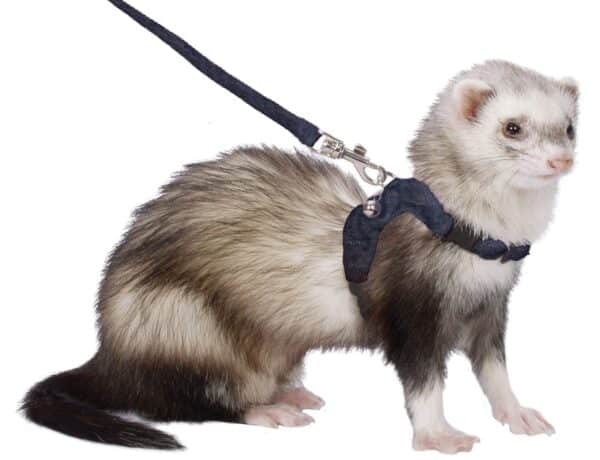
No Comments